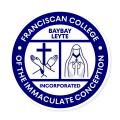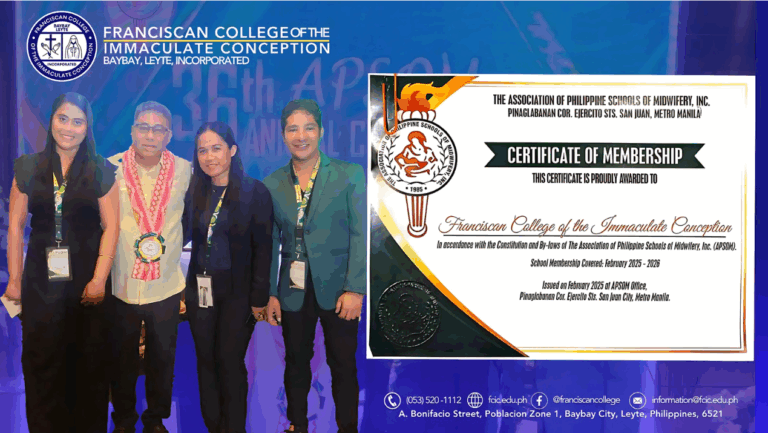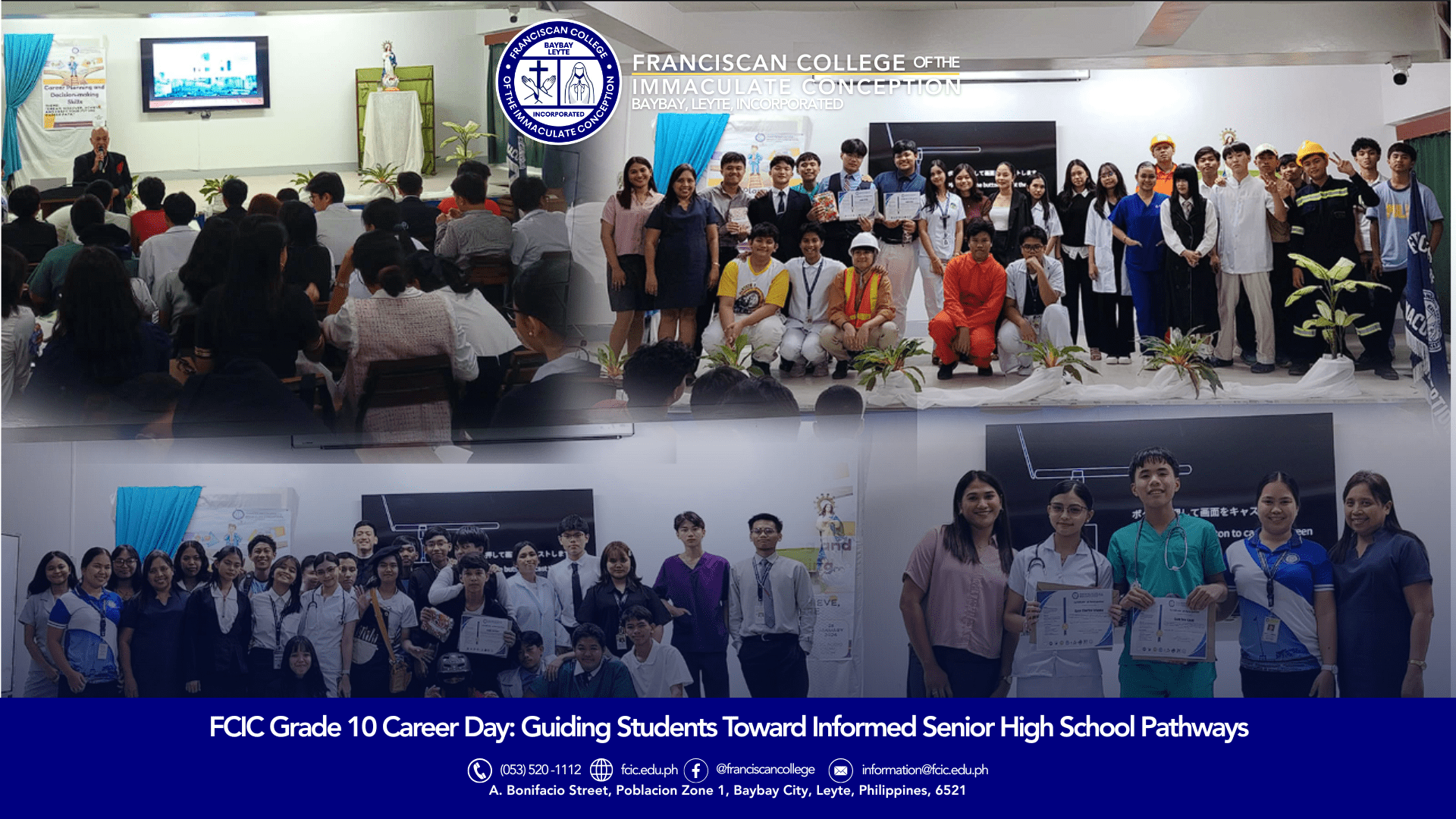The picturesque province of Bohol, famously known as the Heart of the Philippines, played host to a
momentous event in the field of midwifery education — the Annual Convention of the Association of
the Philippine School of Midwifery Inc. (APSOM). Held at the renowned Bohol Tropics Resort and
Hotel, this two-day gathering brought together midwifery educators, practitioners, and stakeholders
from across the nation to foster dialogue, share insights, and set new standards in midwifery
education aligned with global trends.
Theme and Significance
The theme for this year’s convention, “Transcending Global Standards, Innovating for Global
Excellence in Midwifery Education,” underscored the collective commitment to elevating the quality of
midwifery training in the Philippines. It emphasized the importance of integrating international
benchmarks with innovative teaching methods to produce competent, culturally sensitive, and
ethically grounded midwives ready to meet the health needs of diverse populations.
Opening Ceremony
The convention was formally inaugurated by Miss Leah Virginia Lim, RN, RM, MAN, the APSOM Convention Chairperson. Her opening remarks set an optimistic tone for the event, emphasizing the vital role of continuous professional development and innovation in midwifery education. The opening message was graciously delivered by Miss Raquel V. Morales, RM, RN, LPT, MAN, who highlighted the significance of unity and resilience among midwifery educators as they strive to surpass global standards.
The opening ceremony was lively and vibrant, featuring cultural performances from talented Boholano artists, which showcased the rich cultural heritage of the province and added a festive atmosphere to the event.
Day 1: Core Topics and Discussions
Morning Session
The first topic, “Direction of Philippine Midwifery Education: Are we in line with global standards?” presented by Mr. Charlie Falguera, RN, RM, MAN, the Chairman of the Technical Panel for Midwifery Education under the Commission on Higher Education (CHED), delved into the current state and future trajectory of midwifery curricula. Mr. Falguera emphasized the importance of aligning local educational standards with international benchmarks to ensure graduates are globally competitive, ethically grounded, and adaptable to changing healthcare landscapes. He highlighted initiatives to incorporate competency-based education, evidence-based practice, and the integration of emerging technology in midwifery training.
Ethics and Cultural Sensitivity
Another critical discussion was led by Mr. Rolly Villarin, RN, MPA, MDM from the Department of Health Region 7. His presentation, “Ethics and Cultural Sensitivity in Midwifery Practice,” underscored the significance of culturally competent care. As midwives often serve diverse communities, understanding cultural nuances, respecting patient autonomy, and practicing ethically are essential components of professional practice. Mr. Villarin emphasized that midwives must be equipped with not only clinical skills but also cultural intelligence to provide respectful and holistic care.
Afternoon Session: Embracing Digital Transformation and Research
Digital Transformative Learning
The afternoon session highlighted the role of technology in revolutionizing midwifery education. Mr. Rolando Abarro, a renowned quality system consultant and researcher specializing in educational digital transformation, shared insights on how digital tools and platforms can enhance learning experiences. His presentation, “Digital Transformative Learning in Midwifery Education,” explored innovations such as virtual simulations, online modules, and telehealth integration, which can improve accessibility, engagement, and competency development among students. The adoption of digital strategies is crucial in preparing future midwives for a rapidly evolving healthcare environment.
Research in Midwifery Education
Research was another focal point of Day 1. Mr. Aldrin Boyano, RM, MPH, CHA, the Director of Professional Education at Accelerate Integrated Solutions Inc., discussed “The Midwife Educator as a Skilled Researcher.” He emphasized that fostering a research-oriented mindset among educators and students is vital for continuous improvement and innovation in midwifery training. Research not only informs evidence-based practice but also contributes to policy development, curriculum enhancement, and improved patient outcomes.
Global Perspectives in Midwifery Education
The day concluded with a live-streamed presentation by Miss Felicity Copeland, a midwifery consultant from UNFPA in New South Wales, Australia, titled “Perspectives in Midwifery Education Across Borders.” Her talk highlighted international best practices, cross-cultural collaborations, and the importance of adopting a global outlook in midwifery education. Such insights encourage Filipino educators to learn from international experiences and adapt successful strategies to local contexts.
Day Two Highlights at the Annual Convention of the Association of Philippines Schools of Midwifery Inc.
The second day of the annual convention held by the Association of Philippines Schools of Midwifery Inc. was packed with insightful discussions, vital updates, and scholarly presentations that continue to shape the future of midwifery education and practice in the Philippines. Attendees from various institutions and stakeholders gathered to delve into pressing issues, emerging trends, and research advancements that are pivotal to elevating the profession.
Morning Session: Addressing Challenges and Embracing Opportunities in Midwifery Education
The morning began with a comprehensive session focused on Issues and Concerns of Midwifery Education, highlighted by an in-depth discussion on the transition from a two-year diploma program to a four-year Bachelor of Science in Midwifery. This significant shift in curriculum aims to align Philippine midwifery education with international standards, ensuring graduates are better prepared to meet global healthcare demands. Speakers and educators exchanged ideas on how schools can adapt their curricula, faculty development, and infrastructure to effectively implement the new program. Emphasis was placed on the importance of curriculum review, accreditation, and faculty training to ensure a smooth transition that maintains the quality and integrity of midwifery education.
Next, the discussion moved to Cross Border Accreditation: Its Impact on the Midwifery Profession.”This topic explored how international accreditation standards influence local educational institutions and the broader practice of midwifery. Participants examined the benefits of cross-border accreditation, such as increased recognition of Filipino midwives internationally, enhanced mobility, and improved educational quality standards. The conversation also highlighted challenges, including aligning local curricula with global benchmarks and ensuring that regulatory frameworks support these international standards. Overall, the session underscored that cross-border accreditation is a vital step toward integrating the Philippine midwifery profession into the global healthcare community.
The final morning topic, The Role of the Accredited Professional Organization in Transcending Global Standards of Midwifery Education, emphasized the importance of professional organizations in advocating for quality education, continuous professional development, and policy reforms. Speakers discussed how these organizations can serve as catalysts for setting and maintaining high standards, fostering collaboration among institutions, and representing the interests of midwives on both national and international levels. The session reaffirmed the commitment of the professional body to uphold excellence and adapt to evolving global standards in midwifery education.
Afternoon Session: Research Colloquium
After a hearty lunch break, the convention shifted focus to academic excellence with the Research Colloquium, showcasing recent research studies from faculty, students, and practitioners in the field of midwifery. This segment provided a platform for sharing innovative ideas, evidence-based practices, and emerging trends in maternal and neonatal health, community health, and midwifery education.
Presenters highlighted their findings on topics such as maternal health interventions, barriers to healthcare access in rural communities, and the integration of technology in midwifery training. The colloquium fostered lively discussions, encouraging collaboration and feedback from peers and experts alike. It was evident that research is a vital driver for continuous improvement in midwifery practices and education, ultimately aiming to improve health outcomes for mothers and infants.
Conclusion
Day two of the convention successfully addressed the critical issues facing midwifery education today, from curriculum transformation to international accreditation and the pivotal role of professional organizations. The emphasis on research underscored the importance of evidence-based practices in advancing the profession. As the convention progresses, these discussions will undoubtedly influence policy, curriculum development, and the overall trajectory of midwifery education in the Philippines, ensuring that future midwives are well-equipped to serve and lead in their communities.
Reflection and Future Directions
The two-day APSOM convention successfully fostered meaningful discussions on bridging local practices with global standards, integrating technology, upholding ethics, and promoting research. As midwifery continues to evolve amid changing healthcare demands, conventions like this serve as vital platforms for collaboration, innovation, and professional growth.
The event also reaffirmed the Philippines’ commitment to producing competent, culturally sensitive, and ethically grounded midwives who can deliver quality care both locally and globally. With the collective efforts of educators, practitioners, and policymakers, the country is poised to transcend current standards and set new benchmarks in midwifery education.
Held amidst the warm hospitality of Bohol, the APSOM Annual Convention not only celebrated the rich cultural heritage of the province but also underscored the vital role of continuous learning and innovation in midwifery. As the Philippines strives to meet and exceed global standards, events like these inspire a future where midwifery education remains dynamic, inclusive, and forward-looking. The dedication of all participants, including the faculty of Franciscan College of Immaculate Conception College of MIDWIFERY exemplifies a shared vision of excellence in midwifery practice and education.







